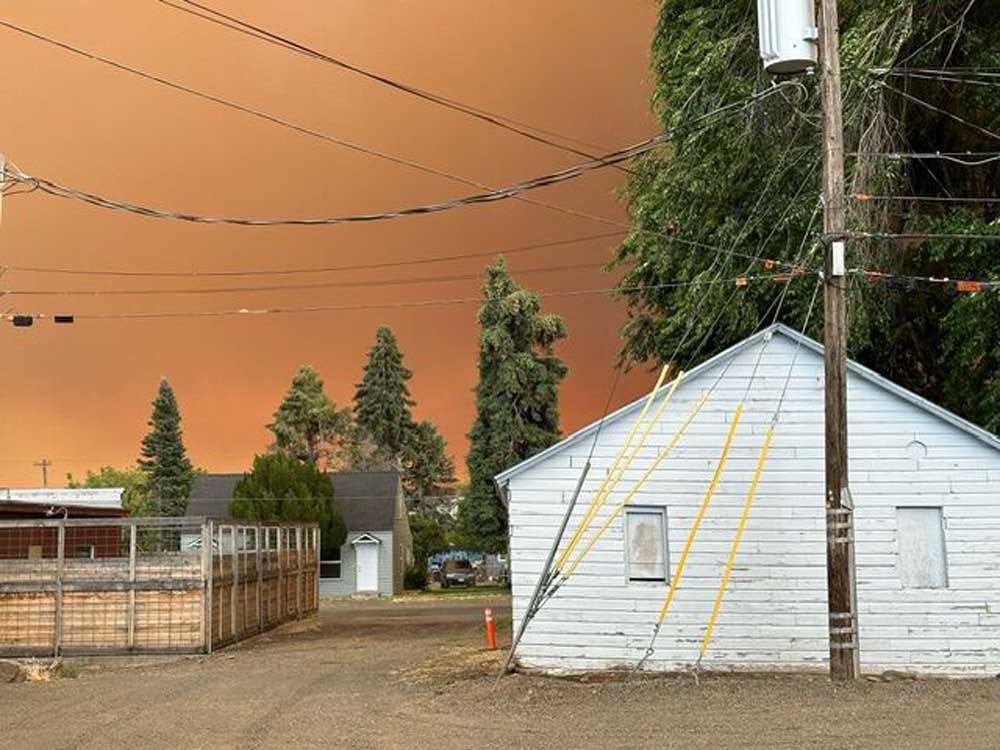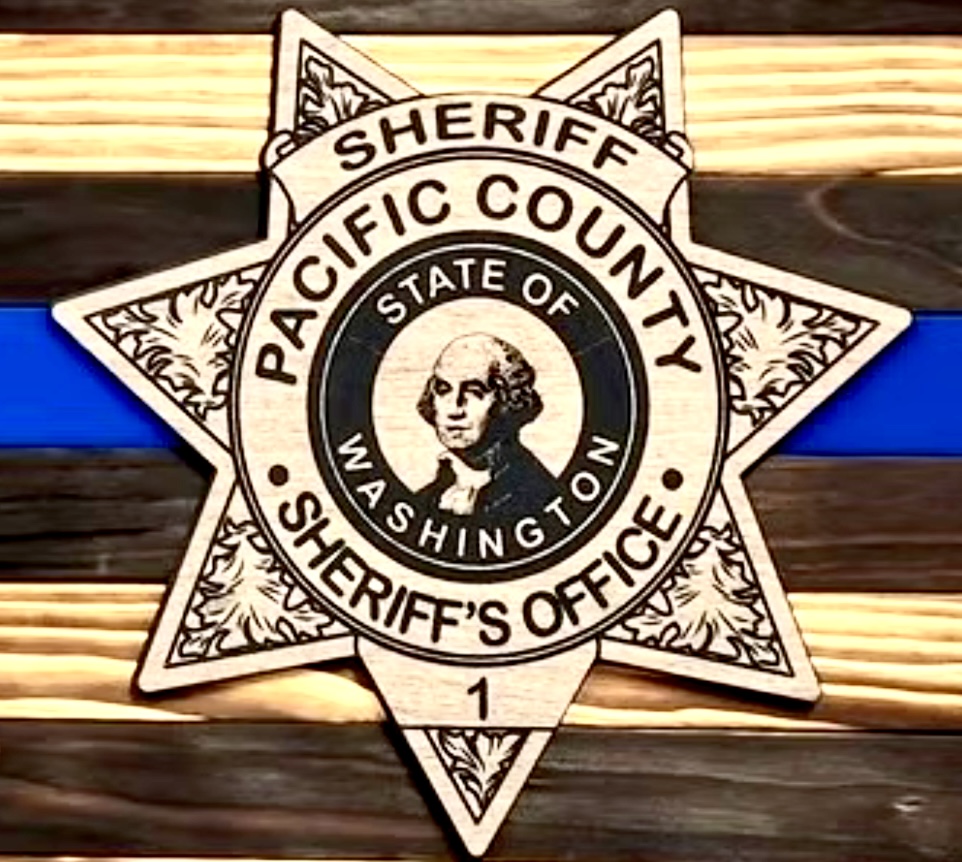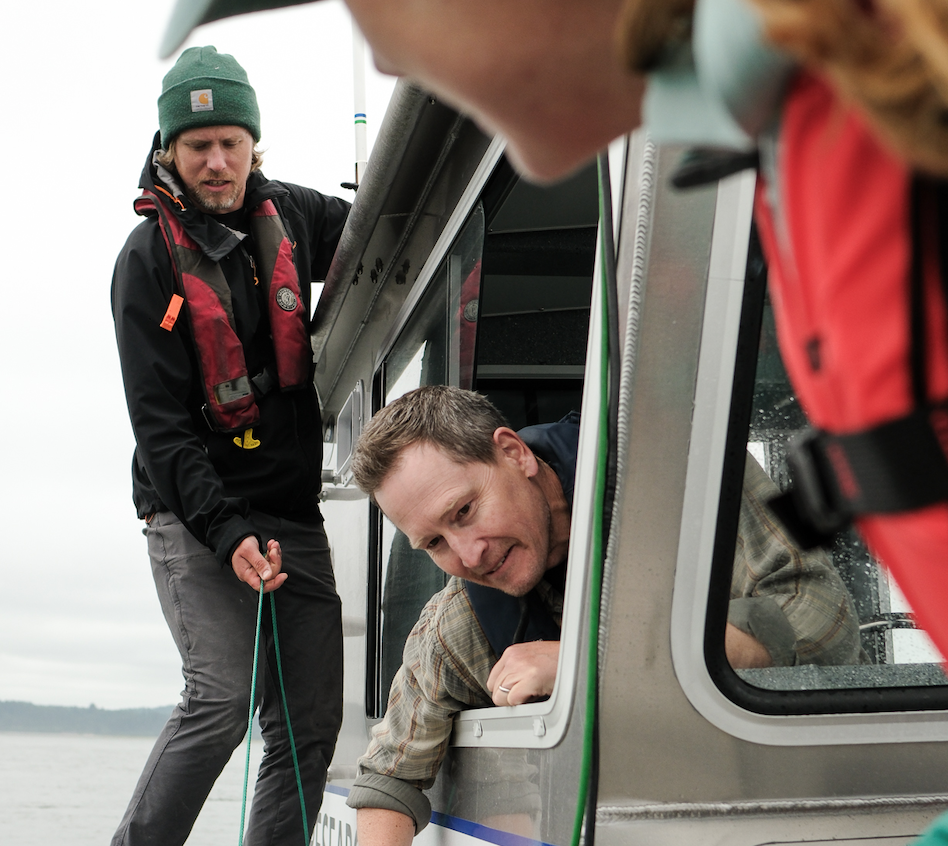Coast Chronicles: Fires this time
Published 12:46 pm Sunday, July 28, 2024

- image5.jpeg
“God gave Noah the rainbow sign, No more water, the fire next time!”
—James Baldwin, paraphrasing a Bible verse
Last night the startlingly glaring red sun set behind Port Townsend as I watched from Marrowstone Island across the waters of Scow Bay, just off Admiralty Inlet. It was a silent evening, green everywhere — not so different from the many dusks I’ve enjoyed in our own corner of the world. But my mind was elsewhere, and that red sun was a warning.
As of this Sunday morning, there are 22 fires burning in Oregon and six in Washington, “according to the Northwest Interagency Coordination Center which coordinates fire response for the states. The fires covered more than 621,000 acres, the agency said.” And, as you’re reading this, no doubt there are more and bigger fires.
I’ve been watching two particular fires where I have friends — all themselves watching and waiting with apprehension. The Retreat/Rimrock Fire, which has closed White Pass Highway 12, is threatening Tieton, just outside of Yakima and the location of a thriving arts community called “Mighty Tieton.” It’s 22,237 acres and zero contained.
The second is the Park Fire, just north of Paradise where 85 people lost their lives in 2018. This new fire, the largest in California, is now over 353,194 acres (and counting), also zero contained. If you live in a fire-prone area you know the routine and the rating system: 1 means get ready; 2 means get set; three means GO!
My friends who live in Magalia a few miles up the highway from Paradise are in “get set” territory. But with all the logistics and family involved they decided to get a couple nights of hotel rooms in Willows, several miles away across I-5. They have a caravan including 96-year old mom, along with brother, sister and her husband, two friends, and two dogs. They must have thought the Paradise Camp Fire was once in a lifetime — now, guess not! (To watch the fires and get relevant information, download the app called “Watch Duty” — it’s free. Take a look: you’ll see the West is on fire!)
July 4 dune fires
We’ve had a wonderful summer, cool breezes, moderate temps, and sunny days. But fire is still a danger. Our grasses have had a bonus growing year. In my orchard yard grasses are over three and a half feet in height, with full tassels that in some places come up to my waist. And there is lots of very dry grasses and leaves at the ground level. Our grasses are just a fire waiting to happen.
And fires did happen — again! — over our Fourth of July Weekend. Janice Pederson has seen several fires over the years. “This last fire scare was near my house,” she says. “But I had already wet down the grass around my house. Several of us called the Fire Department. This one wasn’t as large as the one we had on New Years Eve a couple years ago — both started by fireworks. It came clear up to my yard at 1:00 or 2:00 o’clock in the morning. It was very scary.”
“This time I saw the smoke rising and said, ‘oh no,’ but fortunately it wasn’t that big. I will say I was very disappointed in the people who were out throwing thousands of their dollars up in fireworks. They didn’t even stop when the fire trucks arrived. They kept on shooting fireworks until the police got there, and the minute the police cars left, they started again.”
“I’ve done fireworks, of course, and it was fun when I was a kid. But I didn’t get to shoot them off. The men in the family prepared the place — they built a platform or something to hold the rockets. If you were big enough you might have been given a roman candle to hold, but that was all. It was all very well controlled — and things were cleaned up afterwards. After you’ve had a fire come so close to your house, almost to your door, you’re a little leery and weary about all this on the Fourth of July.”
Janice’s neighbor, part-time resident and retired architect, John Lang recounts, “We’ve had three fires since we bought our property in 1999. One came up very close to the house and was really an extensive burn. This last one was not nearly so extensive. But even so, when we built our house, 25 years ago I did a lot of research about fire-safe materials. Our first floor is concrete block and the deck above it is also fireproof. We have mowed around the house. We’ve done all we could.”
“This last fire started small — when I came down there were three or four people trying to stomp it out. But I took a look and said, no! I ran back to the house to get a hose and shovels and when I got back — and I don’t live that far away — the fire was ten times bigger with flames 10-15 feet high. When the fire trucks came, and even with the growing fire, there were still people shooting off fireworks!”
“You need to watch even in the winter because things might look wet but if a spark gets down underneath the wet grass on top — even if its been raining — there is so much dust and dry grasses down underneath that a fire can start and you won’t notice it right away. It’s scary. What’s interesting is that Native people did a lot of fire control, and that spot that burned two weeks ago, now has new grass 15 inches high.”
What will it take?
Unfortunately, many of us think that banning fireworks on our beaches will not be resolved until we’ve experienced some kind of disaster: homes burning on the beach side, or even a fatality. We’ve been lucky so far.
To talk more about the issue I visited Fire Chief Jacob Brundage to ask about dune fires. “Our dunes are unique — we have big swales and gullies — and our prevailing winds promote a quick starting fire. And it can move quickly. Because of the grass growth, the fire burns across the tops of the grass so it can spread quickly. We just had another fire in Nahcotta around 263rd and Sandridge.”
Assistant Chief of Operations Mike DeConto adds, “A lot of people with a camp fire think it will burn itself out if you put some dirt on it. Not true, you need to douse it with a couple buckets of water, then feel it to see if it’s completely out.”
In terms of how to keep your house fire safe: 1) make a “defensible zone.” That means clearing brush or any growth that comes up against or near your house; 2) cut down anything that grows into the eaves or soffits of your home; 3) clear any “duff,” pine cone or needle debris from around your home; and 4) especially in fire season, wet the perimeter of your home to keep this defensible zone damp. Fire can spread both from roots smoldering underground or sparks from above carried in the wind.
If you have any questions about how to protect your home, or what you might need to do to make it fire-safe, give our fire department a call 360-665-4451. and they will send someone out to do a “Wildfire Survey.” Then they can talk your through what is needed.
So just be aware that our so called “fire season” can be any time, even in the winter, if conditions and circumstances are right (see above). And, in the meantime, send good thoughts to communities that are struggling through another round of fierce and fast-moving fires; with special thoughts (or donations to rescue centers) for all the wildlife and domestic creatures who didn’t make this problem but are suffering through its consequences. May we continue to be smarter and kinder humans as we trod this beautiful earth.









